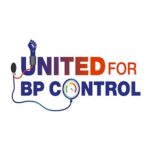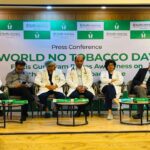healthy soch
New Delhi, May 03, 2019 :
The operating environment has become increasingly insecure and socio-politically complex. Insecurity remains a major impediment to ensuring timely response interventions in the affected communities. Ebola virus disease (EVD) response activities in Butembo and Katwa remained limited; however, these are gradually resuming following a comprehensive reinforcement of security measures and community engagement efforts. The overall security situation, nevertheless, remains volatile. While no significant injuries or damages are reported this week, access and activities in parts of Mandima, Masereka, Kalunguta and Vuhovi, remain irregular due to the presence of armed groups and other security concerns. New EVD cases are expected to continue to increase, in tandem with incidents of insecurity in these hotspot areas over the coming weeks, placing significant strain on response teams and the security resources available to secure their movements.
Incidence of EVD cases in the Democratic Republic of the Congo this week saw a considerable, although not unexpected, rise compared to the week prior. This observation is in line with previous instances where a disruption to response activities was followed by a spike in the number of new cases. Transmission remains most intense in the Katwa, Butembo, and Mandima hotspot areas (Figure 1 and Table 1). In addition, notable recurring re-introduction events having been documented in previously affected health zones such as Mabalako and Musienene, followed by local amplification and extension to affect new heath areas. In the 21 days between 10 – 30 April 2019, 70 health areas within 15 health zones reported new cases; 45% of the 157 health areas affected to date (Table 1 and Figure 2). During this period, a total of 292 confirmed cases were reported, the majority of which were from the health zones of Katwa (47%, n=137), Butembo (13%, n=38), Mandima (11%, n=32), Mabalako (7%, n=20), and Musienene (6%, n=17).
As of 30 April, a total of 1495 confirmed and probable EVD cases have been reported, of which 984 died (case fatality rate 66%). Of the total cases with recorded sex and age, 56% (830) were female, and 28% (422) were children aged less than 18 years. The number of healthcare workers affected has risen to 92 (6% of total cases). To date, a total of 415 EVD patients who received care at Ebola Treatment Centres (ETCs) have been discharged.
From 27 to 30 April, WHO Director-General Dr Tedros Adhanom Ghebreyesus and WHO Regional Director for Africa Dr Matshidiso Moeti, visited Butembo to review current response activities and bolster support for the response personnel currently operating there. During the visit, Dr Tedros and Dr Moeti travelled to Butembo to express their gratitude and show support to WHO and partner organisation staff, while also assessing the next steps needed to strengthen both security and the Ebola response effort. They also met with local political, business and religious leaders, and called on them to accelerate their efforts to help stabilise the surrounding environment. The visit concluded with both Dr Tedros and Dr Moeti reiterating their concerns for the present situation and repeating their appeal to the international community to intensify support to contain the outbreak by bridging the funding gap.
Risk Communication & Community Engagement (RCCE) and Infection Prevention and Control (IPC) teams have been collaborating in preparation for the launch of an IPC campaign due to commence on 5 May 2019, WHO World Hand Hygiene Day. The initial focus of this campaign is on Injection Safety, an initiative aimed at encouraging the greater use of oral medication over injectables and the safe use and handling of needles at healthcare facilities as a means of reducing EVD transmission risks. RCCE teams are also working closely with other WHO partners to bring about a new mass communication campaign in the coming weeks to promote key messages from all outbreak response pillars to the affected communities.
As part of the continued efforts to empower communities to be more actively engaged in the EVD response, requests received from the numerous dialogues with local residents are being reviewed to aid the transfer of some of the response ownership back to the community. Recent dialogues have focused on addressing community-related incidents of reluctance or mistrust. Some notable successes from this effort have resulted, including some previously resistant contacts coming forward to re-engage with response activities, and pledging to assist by utilising their influence in the community to encourage greater cooperation with EVD response teams.
Figure 1: Confirmed and probable Ebola virus disease cases by week of illness onset by health zone. Data as of 30 April 2019*


*Data in recent weeks are subject to delays in case confirmation and reporting, as well as ongoing data cleaning. Other health zones include: Biena, Bunia, Kalunguta, Kayna, Komanda, Kyondo, Lubero, Mangurujipa, Masereka, Musienene, Mutwanga, Nyankunde, Oicha, Rwampara and Tchomia.
Figure 2: Confirmed and probable Ebola virus disease cases by health area, North Kivu and Ituri provinces, Democratic Republic of the Congo, data as of 30 April 2019


Table 1: Confirmed and probable Ebola virus disease cases, and number of health areas affected, by health zone, North Kivu and Ituri provinces, Democratic Republic of the Congo, data as of 30 April 2019**
**Total cases and areas affected based during the last 21 days are based on the initial date of case alert and may differ from date of confirmation and daily reporting by the Ministry of Health.
healthysoch







